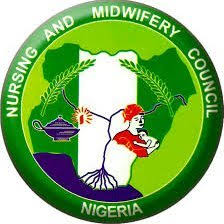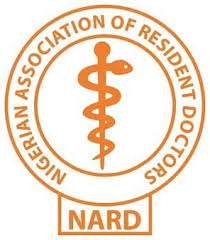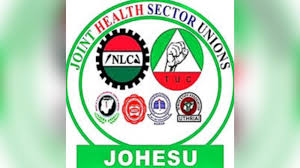- Honourable Minister for Health, Federal Republic of Nigeria;
- Members of the Diplomatic Corps;
- Excellences here present;
- President of the West African Postgraduate College of Medical Laboratory Science;
- Officers and Members of Council of the College;
- Other Postgraduate Colleges present;
- Distinguished invitees;
- Members of the media;
- Ladies and Gentlemen;
- All protocols observed;
I bring you Greetings from the President of the ECOWAS Commission, His Excellency Jean-Claude Kassi Brou, and from the West African Health Organization (WAHO) and we are happy and truly honoured to be associated with the 1st Scientific Conference of the West African Postgraduate College of Medical Laboratory Science holding here in Lagos.
I wish to take this opportunity to sincerely thank His Excellency Muhammadu Buhari, President of the Federal Republic of Nigeria for authorizing the organization of this important conference in Nigeria.
Honourable Minister; Your Excellences; Ladies and Gentlemen;
Forty years ago, 134 countries pledged to assure "Health for All' by the year 2000. They failed to deliver on that pledge. Today, at least 400 million people have no access to basic medical care, and 40% of the world's population lacks social security protection.
Health is a human right. Humanity's failure to provide Universal Health Coverage (UHC) is a violation of this right and must be addressed as a top priority. This can only happen when the ability to detect illnesses and outbreaks is made an integral part of it. Medical laboratory science provides clues that are key in the diagnosis and treatment of disease or injury, and laboratory professionals are one of the major detectives of the healthcare world.
Medical laboratory professionals perform complex tests on patient samples using sophisticated equipment like microscopes. They performs chemical, haematological, immunologic, histopathological. cytopathological, microscopic, arid bacteriological diagnostic analyses on body fluids such as blood, urine, sputum, stool, cerebrospinal fluid (CSF), peritoneal fluid, pericardial fluid, and synovial fluid, as well as other specimens. Medical Laboratory Professionals work in clinical laboratories at hospitals, reference labs, biotechnology labs and non-clinical industrial labs.
The data they find plays an important role in identifying and treating cancer, heart disease, diabetes, and other medical conditions. It is estimated 60 to 70 percent of all decisions regarding a patient's diagnosis, treatment, hospital admission, and discharge are based on the results of the tests Medical Laboratory Professionals perform.
They provide clues that are key in the diagnosis and treatment of disease or injury and assist in the maintenance of healthy lifestyles. Clues to solving the mysteries of diseases are found in our own bodies. Laboratory tests monitor the composition of our blood, urine, and other body fluids and tissues for early warning signs of disease. Laboratory professionals perform tests that are crucial to our health and well-being. Although they spend less time with patients than physicians and nurses, laboratory scientists are just as dedicated to patients' health. As vital members of the healthcare team, they play a critical role in collecting the information needed to give the best care to an ill or injured patient. They find great satisfaction in their work, knowing that they are helping others and are saving lives.
It is the medical laboratory professional, who measures blood cholesterol and blood sugar, tests for anaemia, checks the urine for protein, identifies strep throat bacteria, prepares blood for transfusion, and even determines if a hit and run driver was under the influence of alcohol or drugs. Medical lab professionals work in hospitals, clinics, forensic or public health laboratories, as well as pharmaceutical industries, biotechnology companies, veterinary clinics, or research institutions. Depending on the setting, their work hours may vary; but typically laboratories are run 24 hours a day, seven days a week. Medical laboratory professionals spend the majority of their time on their feet, analysing test results in the lab.
Medical laboratory professionals work in many settings: hospitals, clinics, research facilities, public health centres, the Armed Forces, veterinary offices, colleges, business, and industry. Academic achievements and technical ability set the level for responsibility one reaches in medical laboratory science.
These laboratory professionals are responsible for performing routine as well as highly specialized tests to diagnose and/or aid in the treatment of disease, troubleshooting (preventing and solving problems with results, specimens, or instruments), and communicating test results to the pathologist and the physician.
They also play the main role in procuring vaccines and cures for life threatening epidemics by working with organizations such as the Centres for Disease Controls, referential research centres and the World Health Organization. The work done by a clinical laboratory scientist is so important and essential to the world of medical science.
Laboratory information enables physicians, pathologists and other healthcare professionals to make appropriate evidence-based diagnostic or therapeutic decisions for their patients. Clinical laboratory services are the most cost effective, least invasive source of the objective information used in clinical decision-making. Laboratory tests are often part of a routine check-up to look for changes in your health. They also support medical doctors to arrive at accurate decisions in diagnosis of illness and medical conditions, evaluate treatments, and monitor the spread or progression of infection.
Honourable Minister; Your Excellencies; Ladies and Gentlemen;
The theme of this congress "The Role of Medical Laboratory Professionals in the Successful Implementation of Universal Health Coverage in the ECOWAS Region" is very apt. The role of Medical Laboratory Professional in Universal health coverage (UHC) has been at the forefront of the global health agenda for several years, with renewed enthusiasm following the issuance of the Sustainable Development Goals in 2015. Universal Health Coverage has been defined by the World Health Organization (WHO) in 2010, as “ensuring that all people have access to needed health services (including prevention, promotion, treatment, and rehabilitation) of sufficient quality to be effective, while also ensuring that the use of these services does not expose the user or the patient to financial hardship".
Since one of the goals of Universal Health Coverage is to reduce the financial hardship associated with healthcare, it is expected that, regardless of the quality of services in a system, high costs of care are being reduced. A key indicator to consider is the incidence of catastrophic spending. Yet, even in the face of the global momentum and political commitments to UHC, the incidence of catastrophic Out-of-pocket payments spending globally has actually increased since 2000 at all household expenditure thresholds.
Out-of-pocket payments are defined as direct payments made by individuals to healthcare providers at the time of service use. They primarily serve to sustain the provision of health services, creating perverse financial incentives.
A 2009 Rockefeller Foundation report indicated that this type of spending is "the most inequitable and inefficient form of financing for healthcare, leaving patients" without access and further impoverished. Moreover, relying on high out-of-pocket payments, regardless of income level, violates the spirit of UHC by driving people into poverty and can make the achievement of effective UHC impossible.
For most people without access to such insurance schemes, high out-of pocket expenses mean that families must provide a large sum of money (relative to their incomes), using multiple avenues, before accessing care. In some parts of the world, requirements for out-of-pocket payment deviate so completely from any type of functioning financial system that they lead to detention in the hospital of patients unable to pay, with an appallingly negative impact on the quality of care received. For example, it has been reported in 2017 that in the Democratic Republic of the Congo (DRC), approximately 54 percent of mothers at one healthcare facility were detained after failing to pay medical fees for giving birth. Although they may receive care, these patients are detained for weeks or even months afterward, without continued care, food, or even a bed. The factors contributing to the practice are multifaceted, complex, and not easily resolved without dedicated resources and political leadership.
A cornerstone of UHC should be to end patient detention, but doing so is not a simple task. There is the need for a strong political commitment into the national health accounts system and also strong mechanisms should be put in place for a working health insurance schemes in our region.
Honourable Minister; Your Excellencies; Ladies and gentlemen;
As countries make progress toward universal health coverage and design and deliver their essential health benefits packages, diagnostics must be included as a key component of such packages. This is because most diseases or conditions cannot be correctly managed without a clear diagnosis. High-quality health care begins with seeking care, followed by a diagnosis that leads to appropriate therapy.
Individual disease and outbreaks cannot be stopped or restricted if the cause is not identified early. When diagnostics are not acknowledged as an essential component of the healthcare system, they get little attention, budget, and support for implementation. If tests are not explicitly listed in national health plans or benefits packages, there is no mechanism for procurement, supply, and reimbursement. The consequences of underinvestment in diagnostics and laboratories are clear. The laboratory infrastructure in most low and middle income countries is very weak. Even basic tests are missing in many health facilities. In a study of 10 countries in sub-Saharan African in 2017, only 2% of healthcare facilities had the ability to perform eight basic tests — for blood glucose, haemoglobin, malaria, urine dipstick for protein and sugar, HIV, syphilis, and pregnancy. In the absence of laboratory support, healthcare providers have no choice but to resort to empirical and syndromic treatment.
Similar cascade-of-care analyses for HIV, hepatitis C, hypertension, and prevention of mother-to-child HIV transmission have each shown big gaps at the diagnosis stage. The consistency of diagnosis as a key gap across disease areas and settings is quite remarkable and underscores the chronic neglect of diagnostics and laboratories in most low- and middle-income countries.
To address this massive gap, countries need to invest in a sustainable, connected, integrated laboratory networks. procure quality diagnostics, and train laboratory professionals to assess results. We must reject the mind-set that simple, rapid tests and syndromic treatments are "enough for poor countries." All patients, rich or poor, deserve to know their diagnosis.
At this juncture, as we commend the giant stride in the inauguration of this college today, I want to charge every medical laboratory professional serving in one capacity or another to rise up and meet up the requirements and expectations of the college, They must come up with pragmatic research findings that would proffer some solutions to the incidence of emerging and re-emerging diseases in the ECOWAS region, they should collaborate and work together with other health professionals to provide a total one health to the ECOWAS population, noting fully that "the health of man is the health of all'. They should not see the establishment of the college as a jamboree or an avenue for confrontation and unfounded acrimony with other members of the health team. To whom much is given, they say, much is also expected.
Honourable Minister; Your Excellencies; Ladies and gentlemen;
Nigeria and other African countries should intensify efforts to make medical laboratory services accessible through public-funded health insurance schemes, as the countries move towards universal coverage of health services. With a strong political will, the combination of diagnostic capacity, access to essential healthcare services will become available in low and middle-income countries like ours.
I want to use this forum to appeal to development partners to collaborate with government of Member States and especially the West African Postgraduate College of Medical Laboratory Science arid other similar postgraduate and research institutions to carry out further specific researches on arresting the progressing cases of emerging and re-emerging diseases like Coronavirus, cancer and neglected tropical diseases in order to reduce the case fatality rate of this disease conditions.
The West African Health Organization at our own level will continue to be proactive and working with different organizations and partners to implement the decisions of the ECOWAS Heads of State and Government on all health matters in the region including training, capacity development and research on providing access to treatment of all emerging and re-emerging diseases and health conditions.
In conclusion, I would like to extend my sincere gratitude to the Honourable Minister of Health for his support to WAHO, and to all those who have contributed, directly and indirectly to the organization of this important Congress.
Thank you! Merci! Obrigado!
Signed:
Management




